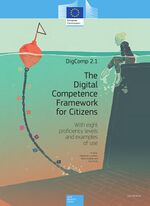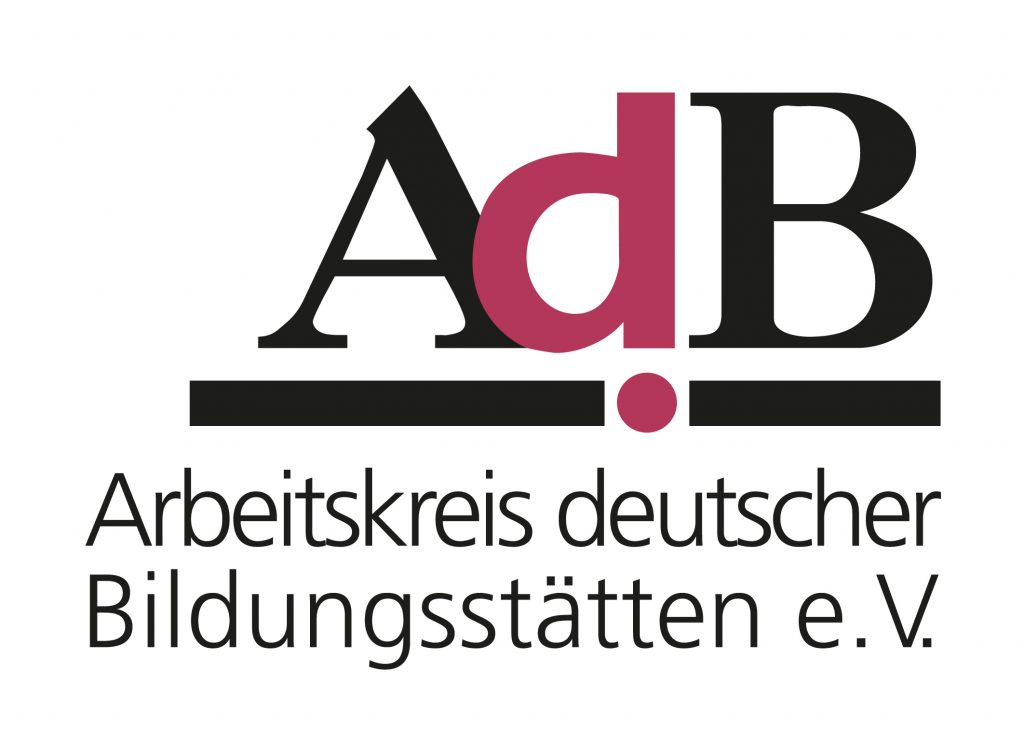Since ubiqutous computing, data and platforms became a matter of course, digital competence is becoming either. From an active citizenship education perspective it is supporting the fundamental aims of participation and co-creation of our society by individual citizens and also to contribute to their freedom and autonomy. Under this perspective acquiring digital competence is as important as the ability to involve in social processes and decision-making, the ability to act pro-actively and to show initiative. It is as important as other key competences. Unlike the digital competencies are often discussed under the focus of technological aspects of media, we should take this bigger perspective.
Contents
- 1 Digital competence
- 2 Transformative Competences
- 3 Upcoming Topics for Digital Competence
- 3.1 The Perspective of Civic Education
- 3.2 Council of Europe: Digital Citizenship Competence
- 3.3 Toward a Systemic Democratic Perspective
- 3.4 Platformisation
- 3.5 Datafication
- 3.6 Learn to understand the technical concepts
- 3.7 Digital Rights as Extension of Offline Rights
- 3.8 Data-Economic and Network-Cultural Knowledge
- 3.9 Global Competence
- 4 Inspiring Handbooks and Sources by Others
Digital competence
The ability to use, shape and apply information technology for different purposes and in manyfold societal contexts.
Transformative Competences
ICT competences are increasingly perceived by European policymakers as part of basic skills, backed by research: “Evidence shows that to keep up with digital developments, simply improving digital literacy is not enough. The ESJ survey data show adults in jobs requiring at least moderate-level ICT skills also require a strong level of complementary skills, such as foundation skills (literacy, numeracy), soft skills (planning and organisation) and behavioural skills (communication and teamwork)” (Cedefop, 2017, p. 3). Such a concept goes beyond a media- or information competence and links strongly to other competences such as self-competence/learning to learn competence, proactivity or social abilities.
OECD Transformative Competences
OECD uses the term 21st century skills in educational debates on the digital transformation. Grounding the work in key competencies that lead to the foundations of the PISA studies, the OECD is providing in “Future of Education and Skills 2030” the term as a meta-category of competences. These support the learners in taking action, reflecting and anticipating. The three transformative competencies are
- Reconciling tensions and dilemmas;
- Creating new value;
- Taking responsibility.
When digital competences should become suitable as a transformative competence, the challenge is to overcome a too-close association with IT knowledge or of digital literacy as only a further development of traditional literacy. More: OECD Learning Compass 2030
Communication and living together in our society depend more on the generation of more data that is increasingly diverse,on information extraction from this data by algorithms, and on the application of this information via machine-mediated assistance. Other aspects must be included, for example data literacy, the crucial ability “to derive meaningful information from data, the ability to read, work with, analyse and argue with data, and understand what data mean” (OECD, 2019).
Digcomp 2.1 framework of the European Commission
In a similar way, the EU seeks to conceptualize digital competence as a key competence. The Joint Research Council developed under the roof of the commission the European Competence Framework DigComp, which aims to support citizens “learning to swim in the digital ocean” (Centeno et al., 2019).
Upcoming Topics for Digital Competence
As the digitalisation of society progresses, it becomes clearer that not only the information sphere has undergone digitalisation. As such, lokking not from the information-technologic perspective but from the social application of the information technology, diverse other aspects are becoming necessary to include in a concept directed from digital competence toward digital transformation competence.
The Perspective of Civic Education
In this perspective, learning about the digital transformation and its social, economic and cultural foundations and effects is gaining importance. Education for Democratic Citizenship with its unique focus on rights, participation, power structures, democracy critical thinking, and regulations has a potential to fill these gaps and extend digital competence.
Council of Europe: Digital Citizenship Competence
With foundations in the Council of Europe's Competences for a Democratic Culture, Digital Citizenship is extending digital competence further on the domain of Education for Democratic Citizenship/Human Rights Education. Digital citizenship includes engagement with digital technologies, participation through and lifelong learning with digital technology under democratic premises. More: Conceptual model
Being Online
- Access and Inclusion
- Learning and Creativity
- Media and Information Literacy
Wellbeing Online
- Ethics and Empathy
- Health and Wellbeing
- ePresence and Communications
Rights Online
- Active Participation
- Rights and Responsibilities
- Privacy and Security
- Consumer Awareness
Toward a Systemic Democratic Perspective
If consiering that people are in different roles affected by digitalisation, for instance, as users, learners, employees, or active citizens, it is evident, that also the ability to create the framing conditions for the digital trransformation needs to be focused more. In this sense, participation is not only a question of rights, but also of regulatory issues, co-creation of digital processes and infrastructures. In particular digital transformation competence should include also aspects such as:
Platformisation
Platforms shifted the way work and services are organised or infrastructures are managed.A more systematic and critical understanding of platforms, platform power and platformisation impact could help lifelong learners in their choices.
Datafication
Measuring, data flows and tracking are playing an increasingly important role in all areas of life, starting with one's own body, in one's own four walls, at work or in public. We might speak from a digital-self competence, the ability to control and create the indiciual representation in the digital sphere.
Learn to understand the technical concepts
Regarding the methodology behind these aspects gains relevance - knowledge about artificial intelligence or big data competence is not becoming obligatory only for IT experts.
Digital Rights as Extension of Offline Rights
Many discussions revolve around legal issues and efforts to extend fundamental rights and democratic principles to the digital sphere (or to consistently enforce them in this sphere). This is a different approach to defining "online rights". For instance: Not proper working prosthetics, robots or restricted access to a public space through a biometric system are quite "analogue" rights violations - but with a strong digital component. Both dimensions are relevant.
Also we need to look at aspects of inclusivity, non-discrimination, freedom from norms, surveillance, inclusivity, access, freedom of speech, autonomy, integrity (of services and devices), property (not only copyrights but also individual property rights related to data), or customer rights.
Data-Economic and Network-Cultural Knowledge
Under the heading of platform regulation, there is a debate on competition and technology policy about which form of digital economy is socially desirable and how the future internet should be structured and developed (data-economic knowledge, ability to co-creating network-cultures since these are social and cultural constructions.
Global Competence
Global interdependcies play a crucial role - raw materials, value chains, energy needs, access, data colonialism.
Inspiring Handbooks and Sources by Others
Digital Citizenship Education Handbook
by Council of Europe. Being online. Well-being online. Rights online
DownloadLearning the Digital
Competendo handbook
moreBookmarks
CoE's manual for combating hate speech through human rights education
DownloadMedia Literacy for Global Education
Toolkit for Youth Multipliers by North-South Centre of CoE
DownloadDigComp 2.2: The Digital Competence Framework for Citizens
2022 edition of the EU framework
DownloadDigital Competence of Educators
What has digital competency to do with you as a teacher or educator?
Download'DigCompSat
DigComp 2.1 Self Assessment Tool
DownloadDigital Citizenship Education - Trainers' Pack
The concept of DCE applied in education and learning, published by Council of Europe
DownloadDigComp into Action
A guide on how to make use of the DigComp framework
DownloadFI.DO Training Material
FIghting fake news and DisinfOrmation in a lifelong learning context.
DownloadDIGIT Manifesto and guidelines for adult educators
Boost Competences for responsible online identity
DownloadDigital competence toolbox for youth work
Verke's toolbox includes criteria for digital competences, a self-assessment tool and also an online test.
onlineHuman vs AI Test
Can We Tell the Difference Anymore? By K. Rajnerowicz
OnlineMaker activities in youth work
A reader about maker culture and youth work by Verke
DownloadHandbook Educational Robotics
From the eMedia Project: Media Literacy and Digital Citizenship for All.
DownloadDOIT Toolbox
from the project DOIT - Entrepreneurial skills for young social innovators in an open digital world
OnlineMakerspaces for Education and Training
Exploring future implications for Europe, by JRC
DownloadTech for Good
Possibilities and limits of using digital instruments in international development projects of NGOs
DownloadYour Data Mirror
Learn about the mechanisms of data collection and the impact this practice on society. By Interactive Media Foundation.
onlineHandbook Media Literacy
From the eMedia Project: Media Literacy and Digital Citizenship for All.
DownloadOnline test: filter bubble
interactive introduction by Zentrum fir politesch Bildung (ZpB) Luxemburg
OnlineEU vs. Disinfo
The EU portal on disinformation
onlineOpen your eyes
Handbook: How to identify and tackle online disinformation?
DownloadOpen your eyes
Database: Fake news
OnlineSTEPS -Survival Toolkit for EDC in Post-factual Societies
Texts, studies and methods from the project STEPS DownloadVisual Literacy
How to think and act with images?
DownloadCinema Stories
Working with movies
Read moreFreedom of Press Report
by RSF - Reporters without Borders
OnlineDigtal News Report
by Reuters Institute for the Study of Journalism
Online
Nils-Eyk Zimmermann
Editor of Competendo. He writes and works on the topics: active citizenship, civil society, digital transformation, non-formal and lifelong learning, capacity building. Coordinator of European projects, in example DIGIT-AL Digital Transformation in Adult Learning for Active Citizenship, DARE network.
Blogs here: Blog: Civil Resilience.
Email: nils.zimmermann@dare-network.eu




































